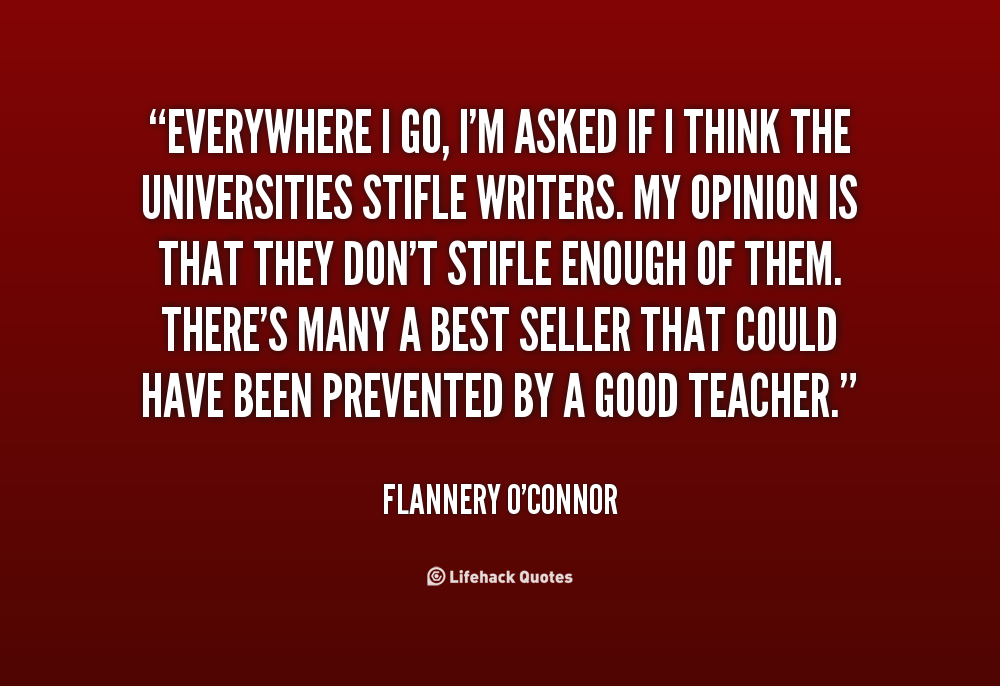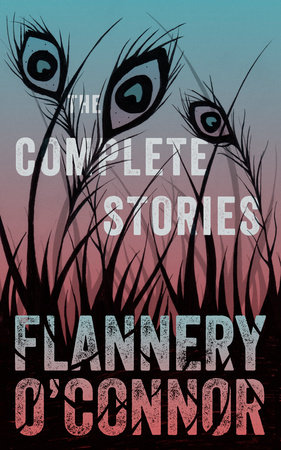
In this next short story by Flannery O’Connor, the narrator brings us into a barber shop, where two (and more) men, discuss who they will vote for in “the Democratic White Primary” (p. 15)
Our main character, Rayber, wants to vote for Darmon, the candidate that supports African American equality. On the other side, Joe, the Barber, wants to vote for Hawkson, a man directly opposed to the rights of African Americans.

This whole story narrates the three visits to the barber shop that Rayber makes (to get shaved). They discuss politics all three times. Before the last visit, Rayber prepares an argument, reasons to vote for Darmon.
We see Raybor read this argument to his philosophical friend, Jacobs, a student.
In the afternoon he took it around to Jacob’s office. Blakeley was there but he left. Rayber read the paper to Jacobs.

Feb 27, 2021 One of Flannery O'Connor's short stories involving a professor who feels a need to explain his liberal political views to a conservative barbershop. The Complete Stories of Flannery O'Connor - 'The Barber' Summary & Analysis Flannery O'Connor This Study Guide consists of approximately 66 pages of chapter summaries, quotes, character analysis, themes, and more - everything you need to sharpen your knowledge of The Complete Stories of Flannery. Flannery O'Connor at the Amana Colonies in Iowa on October 9, 1947. Cameron McCauley). O'Connor had written 'The Barber' in her very early 20s, as a student at the University of Iowa.
“Well,” Jacobs said, “so what? What do you call yourself doing?” He had been jotting figures down on a record sheet all the time Rayber was reading.
Rayber wondered if he were busy. “Defending myself against barbers,” he said. “You ever tried to argue with a barber?”
“I never argue,” Jacobs said.
“That’s because you don’t know this kind of ignorance,” Rayber explained. “You’ve never experienced it.”
Jacobs snorted. “Oh yes I have,” he said.
“What happened?”
“I never argue.”
“But you know you’re right,” Rayber persisted.
“I never argue.” (pp. 21-22)

Rayber is trying to argue with these barbers, and this desire seems devoid of any sort of care or compassion. It is polemic, attacking, selfish. But we agree with Rayber on the mere facts of politics (hopefully, right?). Nevertheless, we don’t agree with his tactics. He has right meaning but wrong manner. We see him “argue” in the last two pages of the story.
Rayber felt as if he were fighting his way out of a net. They were over him with their red faces grinning. He heard the words drag out – “Well, the way I see it, men elect…” He felt them pull out of his mouth like freight cars, jangling, backing up on each other, grating to a halt, sliding, clinching back, jarring, and then suddenly stopping as roughly as they had begun. It was over. Rayber was jarred that it was over so soon. For a second – as if they were expecting him to go on – no one said anything. (p. 24)
The men are completely unaffected by Rayber’s speech. Even though arguments are helpful. And it’s not as if an argument has never persuaded someone. However, it is worthless to expect an argument to be able to change someone’s mind. Arguments can, but don’t always affect people. And Rayber does all of this without much sense of compassion. That is what I find missing. If only Rayber could have loved Joe, Roy, and the others in their racism, with the hopes of bringing them out of that wrong thinking. But that is not how Rayber approaches the situation.
Flannery O”Connor had a way of writing irony. She, like other southern writers like Warren, Faulkner, and Clancy, understood that Southern relations are rarely only about authority or correctness — they are about ironic structure, which may raise issues of authority or correctness, but exists as a distinctive ptolemaic of the Southern mind. Irony — like the lonely companionship in Warren, or the role of poor authority in Faulkner. This tension of southern ironic structure is best exemplified in southern race relations — where class structure dictates ones capacity to speak. We have seen this tension in the past as well as our present. Consider the following clip posted by my friend Eric Fink.
The shouts in the audience “go home,” the threat that any other outburst would result in an arrest…” all point to this ironic structure. Individuals are given a voice as long as they are a part of the structure. If they are not a part of the structure, then no matter how loud their voice may be, its unheard. And therefore has no capacity for challenging the structure. Thus, the structure is only challenged from within — an impenetrable quagmire asking citizens to place financial concerns below justice and rightness.
This ironic structure shows up in O’connor’s short story The Barber. There, a college professor (probably in Georgia) finds himself embroiled in a dialogue over several visits about the impending Governor’s election. The discussion of the candidates is centered around race – one candidate is perceived by the audience to be a racial progressive, while one candidate is a status quo candidate. The story though, is threaded around two people who are entitled to debate the merits of the structure, and one person who is impacted by the structure, but has no voice (nor appears to want one). The Barber and his friends are foils that are responding sharply against the candidate that challenge the status quo.
Clearly, the Barber and his companions represent the types of people that educated persons like O’Connor (and I presume most people that read this blog) struggle to engage. The Barber and his companion’s believe that the progressive candidate represents change. They ask the college professor “are you a Mother Hubbard?” — an allusion to one that seeks to change the status quo. [Old Mother Hubbard is a nursery rhyme believed to refer to King Henry VIII’s desire to divorce his wife Queen Katherine of Aragon so he could marry Anne Boleyn — a significant change in social and property relations if allowed. As the story goes, the King is the Dog, the Cupboard is the church, and the bone is the divorce. Thus, “Old Mother Hubbard, went to the Cupboard to get her poor doggie a bone. When she got there, the Cupboard was bare, and so the poor doggie had none.”] The Barber’s companions also refer to the progressive candidate as a “Boy Blue” another nursery rhyme reference, this time to someone that gloats or toots one’s own horn — [“Little Boy Blue, come blow your horn…”]. Thus, two sticking points in general for the literati — people that avoid change for change sake, and people that accuse those seeking change of merely boasting about their own worth or being braggarts.
This story is where O’Connor is at her best. Throughout the story, its the college professor (and not the Barber and his companions) that plays the fool. He finds himself arguing with an audience that won’t listen. He is corrected by his audience who seem to understand the economic stakes he has up for grabs with the election better than he does. And in other places its the Barber that reminds the college professor to “think” and to use his “horse sense.” Finally, though, we understand how obtuse our College Professor is when he is confronted by his own useless task. Having spent the night writing a “systematic analysis” for why voting for his candidate is a good idea, he presents his work to a colleague — Jacob, referred to throughout the story as a thoughtful yet elusive figure [characters think they see him, but can’t seem to find him, and his opinion is referred to as, well, inexact]. Jacob, having read our professor’s analysis says:
“Well,” Jacobs said, “so what. What do you call yourself doing?”
“Defending myself against barbers,” he said. “You ever tried to argue with a barber?”
“I never argue.”
“That’s because you don’t know this kind of ignorance…. You’ve never experienced it.”
“Oh yes I have,” Jacobs snorted.
“What happened?”
” I never argue.”
The Barber Flannery O'connor Summary
“But you know you’re right.”
“I never argue.”
“Wel, I am going to argue. I’m going to say the right thing as fast as they can say the wrong. It’ll be a question of speed. Understand, this is no mission of conversion; I’m defending myself.”
The ironic structure is the presence of one who is persistently in the shadows of the ignorance, and does not seem to give any indication of caring. George is the african american shop-boy that cleans up for the barbers. George, unlike our Professor, is profoundly impacted by these larger social issues. Asked at one point who he’d vote for, George says “I don’t knows if they gonna let me vote.” And then says, “I’m gonna vote for Hawkson,” the candidate the Barbers supported. George is a character the none of the white participants respect. In another exchange, the Barber asks our college professor if he would like to teach both white and black students. When the professor says he’d teach everyone, the question is then given to George:
“How’d you like to go to a white school, George?” the Barber shouted.
“”Wouldn’t like that,” George said. We needs sommo powders. These here the las in the box.”
The Barber Flannery O'connor

The Barber and his companions treat George as a fools foil, asking George to validate their opinions and contradict the professor, and then satisfactorily sitting back as George does so. Ironically, so does the professor. But George understands the social dynamic better than anyone. He understands that disobedience means not having a job — from his perspective, going to a white school is not better than fetching white powders. He understands that going to white schools, while probably better, makes him no better off and likely results in greater violence to him. And George, understands that people like the professor, whether well-intentioned or not, have less at stake than he does.
Cached
Which brings us back to the video of the protestors in North Carolina. These young people understand the stakes. They appreciate the risks. They engage the ironic structure with a voice that does not want to be heard . Kudos.